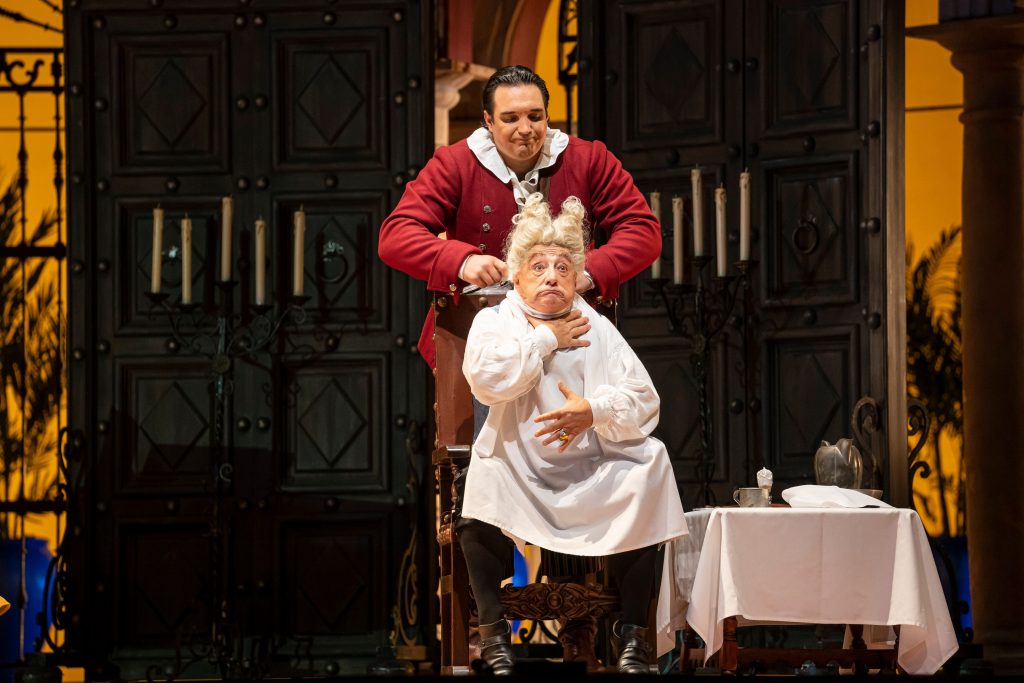
Opening night at the opera remains a striking occasion. The red carpet, the gowns, the heart racing energy flowing through the nearly 4000 people assembled to see The Barber of Seville, one of the world’s most popular operas. It’s ironic that something so beloved isn’t exactly an original. Rossini based his classic on a French opera of the same name written 30 years earlier by Pierre Beaumarchais. It was Rossini’s genius that allowed him to make his version infinitely better.
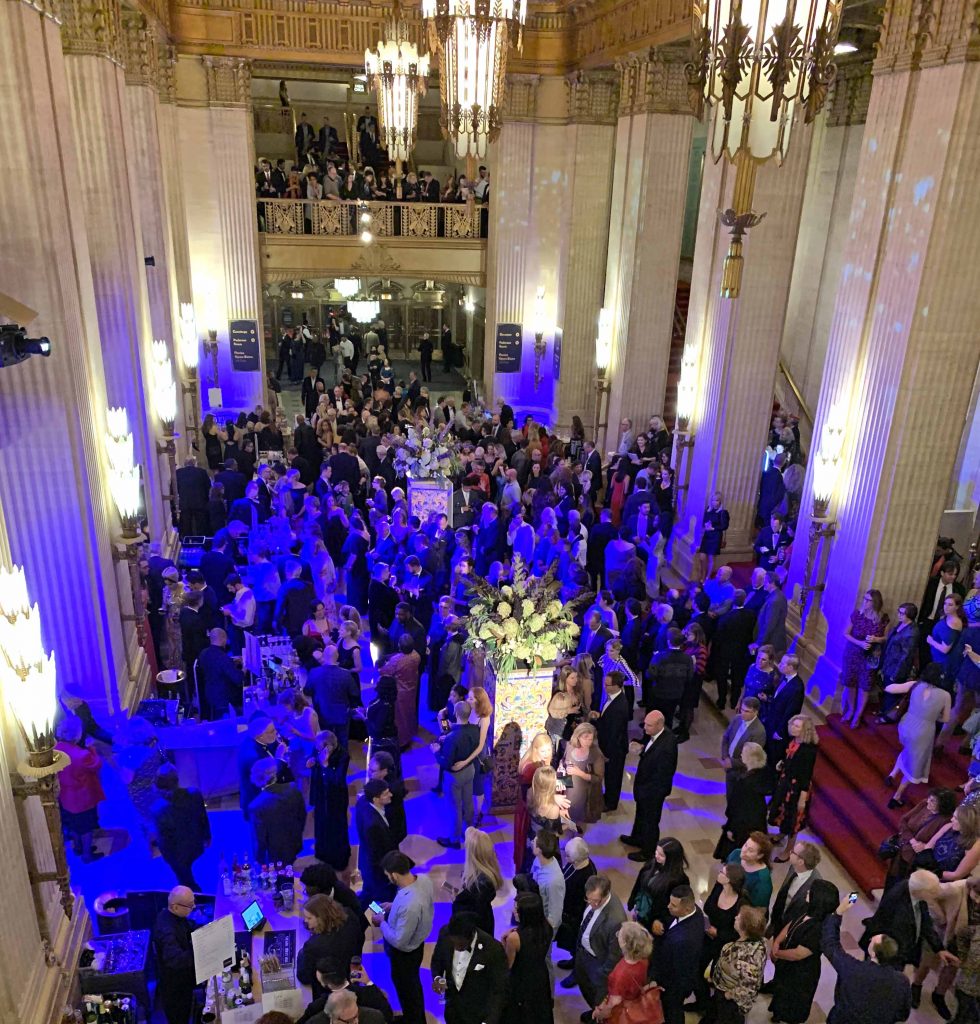
There are plenty of reasons why his Barber still holds its acclaim two centuries later and they were on full display Saturday night. Some might say it’s because Rossini’s signature opera is everything you would expect an opera not to be. Funny, accessible and warm. But there’s one attribute people usually don’t bother to include. Thanks to Cesare Sterbini, the librettist who wrote the opera’s text, The Barber of Seville happens to be delightfully clever and filled with strong personalities who know what they want and have the tenacity and imagination to get it. If all the of characters in Rossini’s 38 operas are this finely drawn, it’s no wonder he’s such a darling of the genre.
Sitting here in the 21st century, the story seems a timeless one. Aged aristocrat wants to marry the innocent beauty who not surprisingly has her eye on somebody else.
Following a sumptuous orchestral opening conducted by Sir Andrew Davis, the curtain rises to reveal a world not at all like our own. Delicate ironwork and an elegant 19th century courtyard where Count Almaviva is standing below Rosina’s balcony with plans to woo. Aided by the barber, Figaro, we begin to get a sense of how resourceful and determined these two are in achieving their end. We also get a feel for how complicated this love affair might get since Rosina is already in love with a poor student named Lindoro. She just doesn’t know that Lindoro is really the Count.
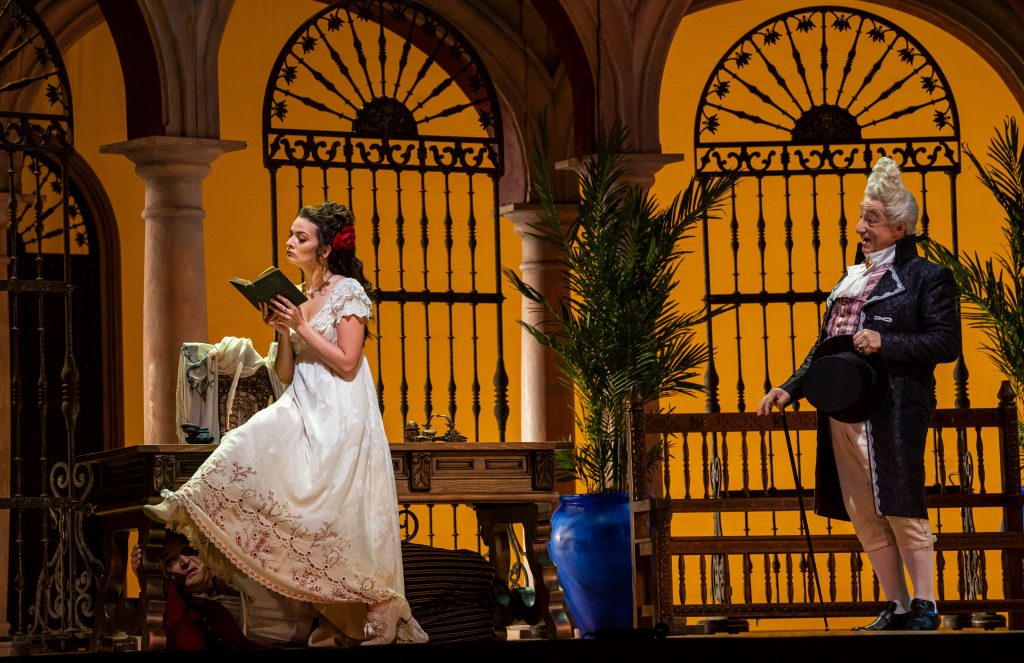
The plotting, along with the knowing smiles and laughter it causes in the audience, never ceases in this careening three-sided love story. Rosina’s guardian, Dr. Bartolo, whose end game is to make her his wife and claim her dowry; has already taken the (useless) precaution of sequestering her in the villa. And, through his paranoia, is just a step away from locking her in her room.
Rosina, savvy as well as beautiful, proves to be just as canny as the cunning Dr. Bartolo. With her lustrous mezzo soprano and evident pleasure in the part, Marianne Crebassa makes a formidable and radiant Rosina. She’s got her heart set on Lindoro and using the versatile Figaro as her go-between too, she’s more than willing to play the stakes high.
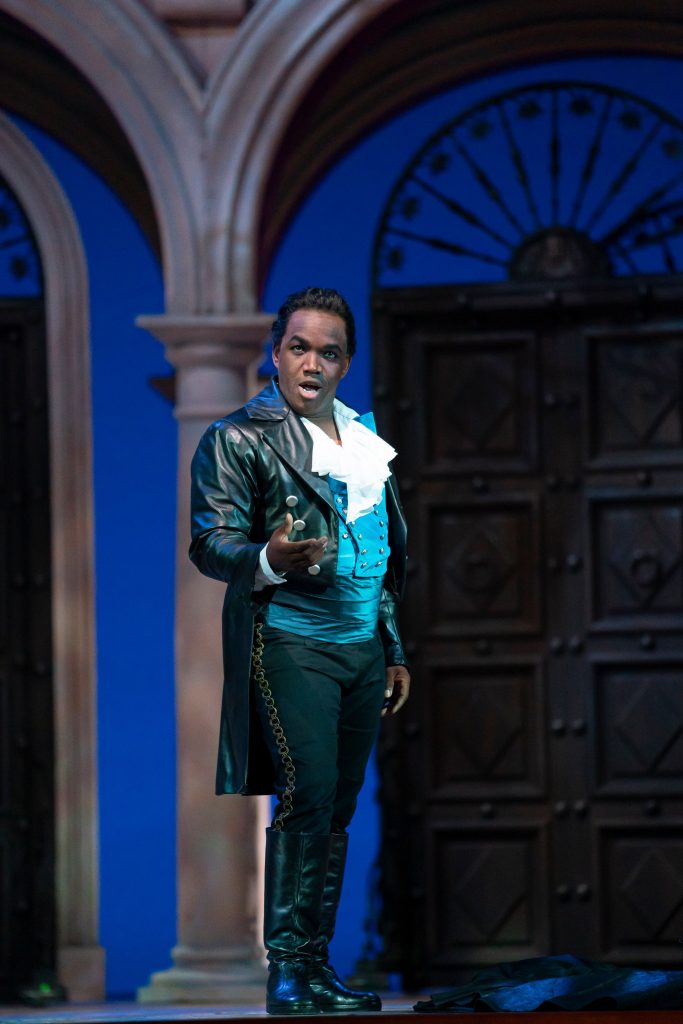
Much of the action in any other context would be quite serious. Played here through farce, it’s just an evening stuffed with amusingly insightful fun. Rossini composed the three-hour opera to play at a panting pace. The diabolically hilarious Dr. Bartolo must marry Rosina quickly before someone else slips in and steals her from him. Which proves he may be silly but not at all a fool. Count Almaviva and Figaro need to first, get access to Rosina and then find a way for the lovers to elope. Immediately.
Despite countless tense moments where lies are exposed and disguises threaten to dissolve in discovery, both the Count and Figaro play it cool. Lawrence Brownlee as Count Almaviva is such a suave imp. Intellectually unflappable. Romantically, so sincere. And he doesn’t have any reservations about going a little camp. That combination would make any character irresistibly watchable. A tenor known for the broadness of his tones and velvet phrasing, Brownlee; like each of these performers, shines most brightly in their solos. The perfection of highly trained, wonderfully gifted voices is unmatchable and always exhilarating to hear. Even Berta, Dr. Bartolo’s housekeeper, with a confident Mathilda Edge making her Lyric debut in the role, was enchanting in her aria during the second act. The richness, depth and graceful power in her voice were all marvelous.
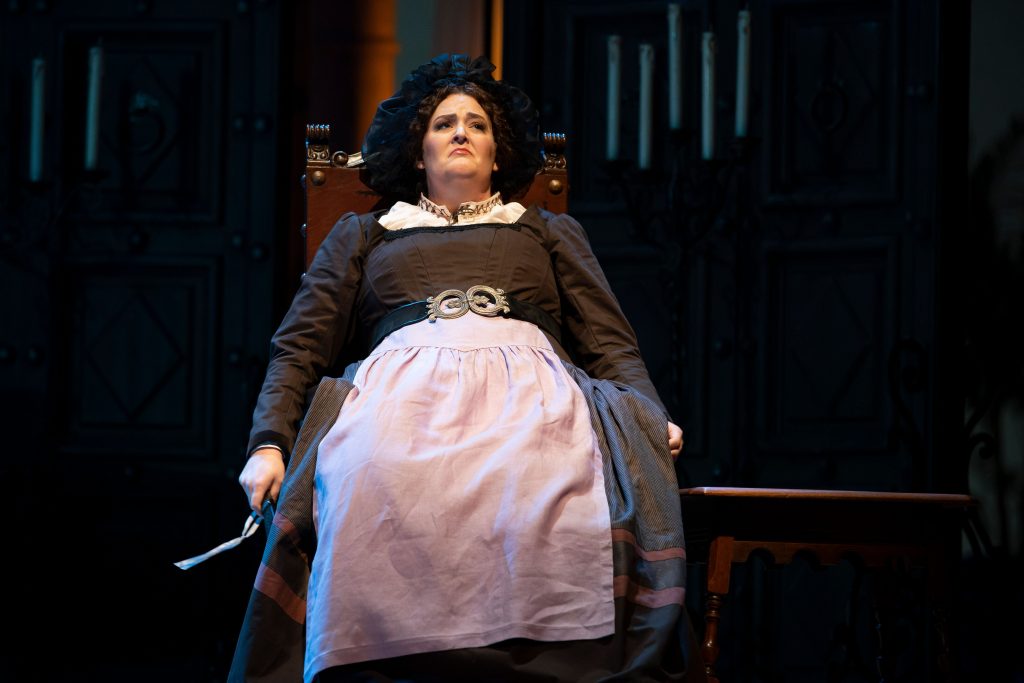
Like all great librettist, Sterbini knows a little bit about human nature. And in combination with Rossini’s adroit compositions, he knows how to mine that knowledge in a way that lets us see a little bit of ourselves and laugh as we do here. Figaro’s quite aware of his talents as a fixer. But he’s completely devoid of smugness. And for all the hilarity rampant in the opera, the chorus at the end of the production extending the wish that everyone find love and fulfillment in their lives doesn’t come off as maudlin in the least. It acts to extend the opera’s exuberance.
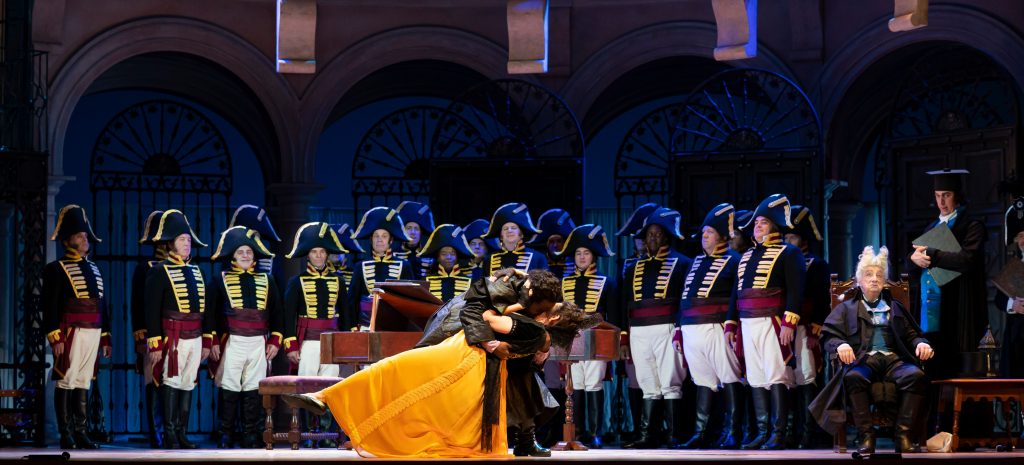
Little of The Barber of Seville’s impact opening night could have been possible without the technology that syncs and projects English translations of the opera’s songs and musical dialogue high over the stage. The bridge of understanding it provides lets the present more thoroughly enjoy the past and helps to ensure the vibrancy of great music continues into the next millennium.
The Barber of Seville
Sept 28 – Oct 27, 2019
Lyric Opera of Chicago
20 N. Wacker Drive
Chicago, IL 60606
lyricopera.org/Barber
312-827-5600